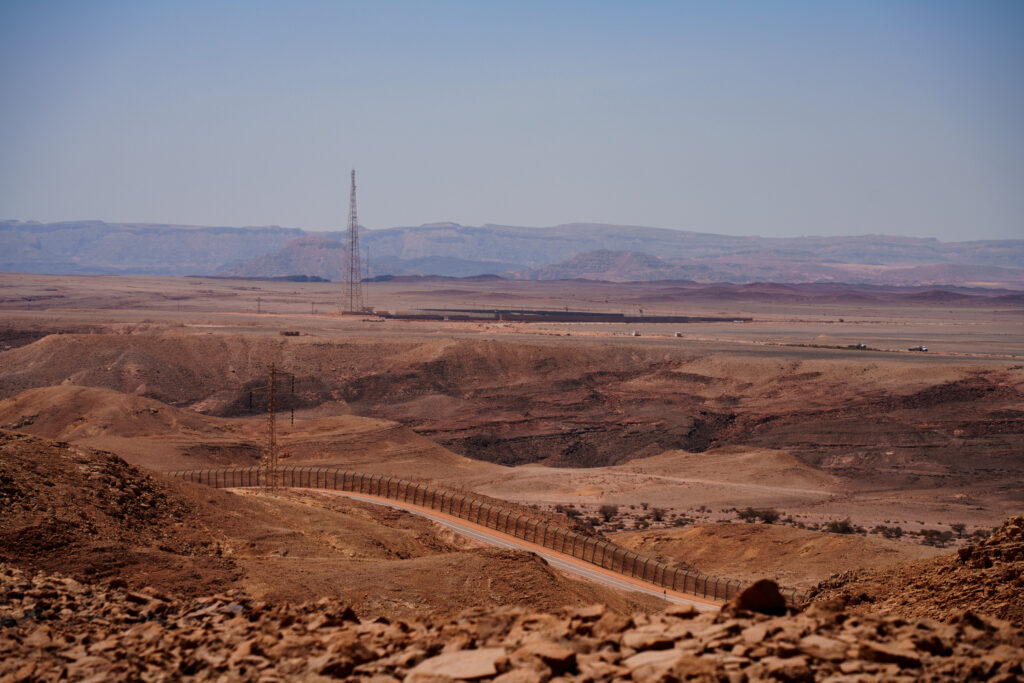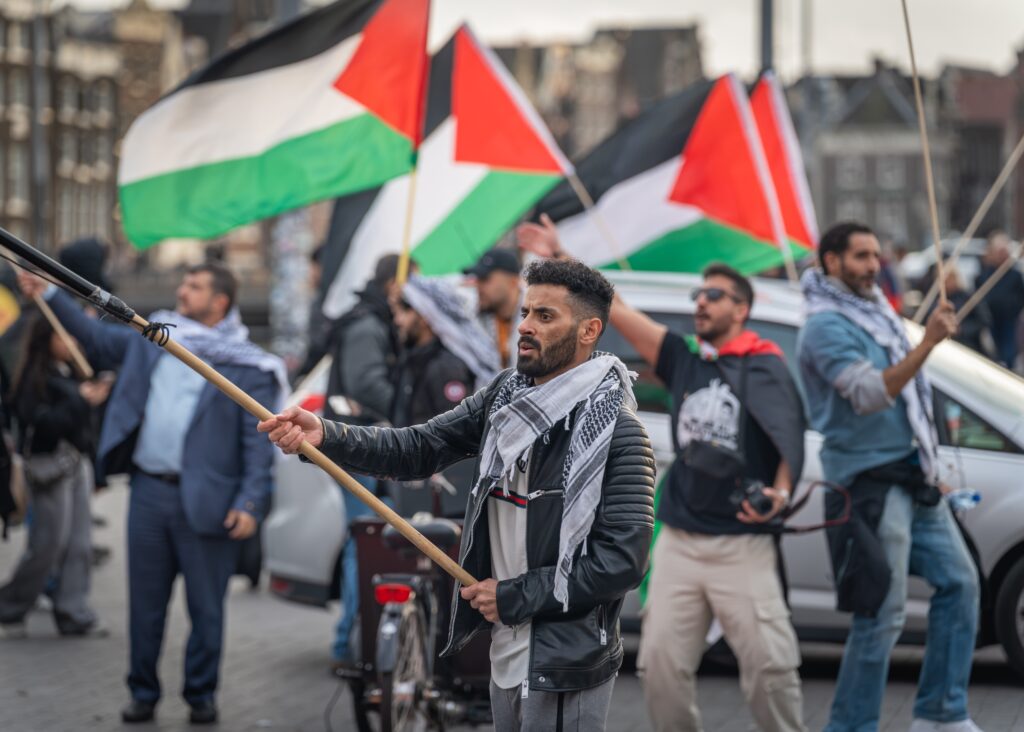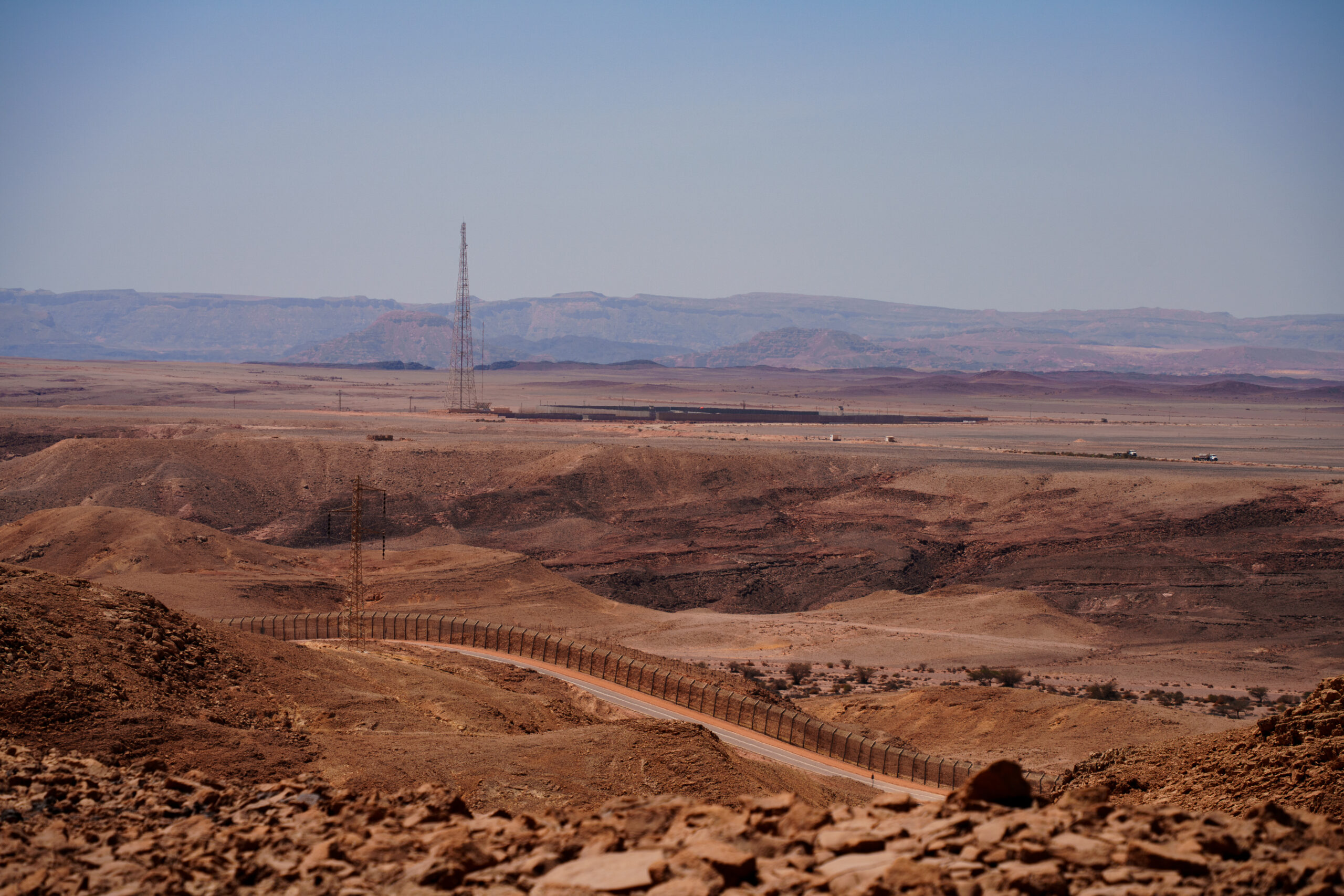Israel Declares Egyptian Border a Closed Military Zone
Israel has sealed off the 130-mile stretch of land along its border with Egypt, declaring it a closed military zone as part of a sweeping effort to stop smuggling and strengthen national security.
The move, announced by Defense Minister Israel Katz, gives the military expanded authority to act against smugglers and drone operators who enter the area without authorization. The goal: to disrupt the growing trade of weapons and other contraband coming in from Egypt’s Sinai Peninsula.
According to Israeli officials, the new rules will allow security forces to directly target anyone attempting to cross or operate within the restricted zone illegally. The government also plans to tighten regulations on drones by requiring new licenses for ownership and operation near the border.

Support for the decision came quickly. Yitzhak Wasserlauf, the minister responsible for developing Israel’s southern regions, said the border had become “a security and economic black hole” that endangered local communities in the Negev.
Local leaders in the south have long warned that weapons smuggling has fueled a rise in criminal activity and illegal arms across the region. The new policy, they say, is overdue.
Israel first began building a fortified barrier along the Egyptian frontier in 2009 to curb illegal migration and drug smuggling. That barrier, completed in 2013, virtually stopped infiltration—but smugglers adapted, turning to drones and catapults to move goods.
The latest step marks a clear shift: Israel is signaling that it intends to regain full control of its southern border and prevent the kind of security lapses that could threaten its citizens again.
Freed Israeli Hostage Reveals Torture and Abuse in Captivity
For more than two years, Rom Braslavski lived what he calls “hell without end.”
At just 21, he was taken hostage from the Nova music festival on October 7, 2023, and held in Gaza until his release last month as part of a negotiated ceasefire. Now free, he’s sharing the horrifying details of his captivity for the first time.
Braslavski described being stripped naked, bound, starved, and repeatedly beaten by his captors. “They took away every shred of dignity,” he said. “It wasn’t just violence—it was humiliation. The goal was to break me.”
He spoke of praying daily for the ordeal to end, surviving each day by telling himself that he could endure one more sunrise. “Every day I told myself, ‘I survived another day in hell. Tomorrow I’ll wake up to another one.’”
Former hostage Rom Braslavski showed extraordinary courage in sharing the horrors of his captivity, including a horrific sexual assault he endured while held by Islamic Jihad terrorists. His trembling voice, heard tonight in Israel and around the world, breaks through the walls… pic.twitter.com/MvGpNdRK7h
— יצחק הרצוג Isaac Herzog (@Isaac_Herzog) November 5, 2025
His mother, Tami Braslavski, revealed that her son had been held in solitary confinement the entire time and pressured to convert to Islam in exchange for better treatment.
Now reunited with his family, Rom says he is determined to rebuild his life—but admits the scars, both physical and emotional, will take far longer to heal. “I came back from meeting the devil,” he said quietly.
His story stands as a haunting reminder of the brutality many hostages endured—and of the strength it takes to survive the unimaginable.
Dutch Court Rejects Bid to Halt Arms Exports to Israel
A Dutch appeals court has dismissed an effort by ten pro-Palestinian organizations to force the Netherlands to stop trading arms and military equipment with Israel.
The groups had argued that the Dutch government’s cooperation with Israel made it complicit in alleged human-rights violations in Gaza. They demanded an immediate ban on all weapons sales and military-related exports.
The court, however, ruled that foreign-policy and defense decisions rest with the government—not the judiciary. While acknowledging the sensitivity of the issue, the judges concluded that it was not their role to dictate the country’s foreign-policy direction.

Government lawyers noted that export licenses are already reviewed individually and that some restrictions have been put in place, such as the suspension of a license to send F-35 fighter jet components to Israel earlier this year.
The decision was seen as a reaffirmation of the government’s right to shape its own security policy while balancing human-rights concerns and international obligations.
For now, trade and cooperation between the two nations are expected to continue largely unchanged, even as public debate in the Netherlands over the war in Gaza remains intense.





